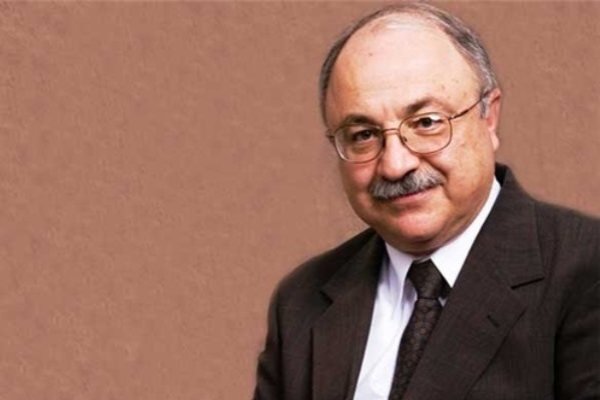Trump and Putin would like to create new world order: Prof.

TEHRAN - Nader Entessar, Professor Emeritus of Political Science from University of South Alabama is the opinion that Both Trump and Putin would like to create a new world order, albeit for different reasons.
Professor Entessar, who was the Chair of Department of Political Science and Criminal Justice at the University of South Alabama, also says that “However, neither Trump nor Putin have a clear idea of how the desired new world order should look like beyond the vague notion of creating a space where the interests of Washington and Moscow are enhanced.”
He adds that “the new world order will still be a polarized world order, but the major players may be different from the current ones.”
Following is the complete text of the interview:
Q: Nowadays we are witnessing great gaps and differences among G7 member states while SCO member states are moving forward more convergence. Some believe that the orders and the regimes created after World War II are declining and because of this reason the U.S. is not going to pay the costs of regimes like NATO, WTO and different free trade treaties like NAFTA and so on. What do you think of this? Why is the U.S. not ready to pay the costs of the regimes and orders as before?
A: I agree with the general thrust of this argument. Many of the post-World War II structures and institutions may not be sustainable in a changing world of today and tomorrow. Also, the U.S. is no longer in a financial position to shoulder the overwhelming financial burden of the post-War order. However, the world order of the post-World War II period will linger on in one form or another until enduring substitutes are found to replace it.
Q: While the U.S. president Donald Trump attended the NATO and G7 summits with an aggressive approach toward Washington’s allies, he is trying to improve relationships with North Korea and Russia with a reconciling approach. Why?
A: We should not confuse tactical theatrics with the long-term strategy of the U.S. Notwithstanding sending feelers toward North Korea and Russia and criticizing NATO from time to time, Washington's long-term strategy of maintaining the stability and primacy of the transatlantic alliance will survive Mr. Trump's volatility and undiplomatic outbursts towards its major allies in Europe and Asia.
Q: The International community is experiencing a new area in which while the U.S. is retreating from the old orders and regimes, China is trying to impose its own orders and regimes by reviewing ancient Silk Road project. To what extent the developments in the Middle East, especially in Syria, are affected by international systems structure which is changing?
A: The developments in the Middle East are certainly a part of the jigsaw puzzle that is evolving in the world today. There is no question that China is emerging as a major political and economic player in the world today, including in the Middle East. But China is still not a global power on par with the United States. It is hard to determine when China will emerge as a truly global power, but as of now, Beijing has nor replaced Washington as the preeminent player on a global scale.
Q: Some theoreticians, including John Mearsheimer, believe that one of the most important elements of president Trump’s foreign policy is to move toward offshore balancing and reduction of troops and increasing of animosity with Iran. Do you agree with this? Will the U.S. decrease the number of its troops in the Middle East? If we accept that the mentioned elements be the base for Trump’s foreign policy, how will Washington confront with Iran’s regional influence?
A: I agree with Mearsheimer's theory. President Trump has talked at length about the need to disengage U.S. troops from many conflicts. However, implementing such an idea may be very difficult, especially in the Middle East where the neocons around Trump have such a major influence in drafting foreign policy. Also, the history of the post-World War II indicates that once the U.S. deploys troops and builds bases in a foreign country, it keeps its military presence in that country. In this context, the U.S. is akin to a guest who never leaves. It may become a less bothersome guest, but it will not leave without being physically evicted by the host.
Q: Reacting to President Trump’s remarks calling EU as the U.S. foe, Donald Tusk, president of the European Council asked Trump and Putin not to disturb world order. Do you think that Trump and Putin are going to create a new world order? If your answer is yes, how will the new polarization be in the new order?
A: Both Trump and Putin would like to create a new world order, albeit for different reasons. However, neither Trump nor Putin have a clear idea of how the desired new world order should look like beyond the vague notion of creating a space where the interests of Washington and Moscow are enhanced. Also, Trump's ideal new world order will most likely will have elements that will be an odds with those of Putin's world order. In other words, the new world order will still be a polarized world order, but the major players may be different from the current ones.
